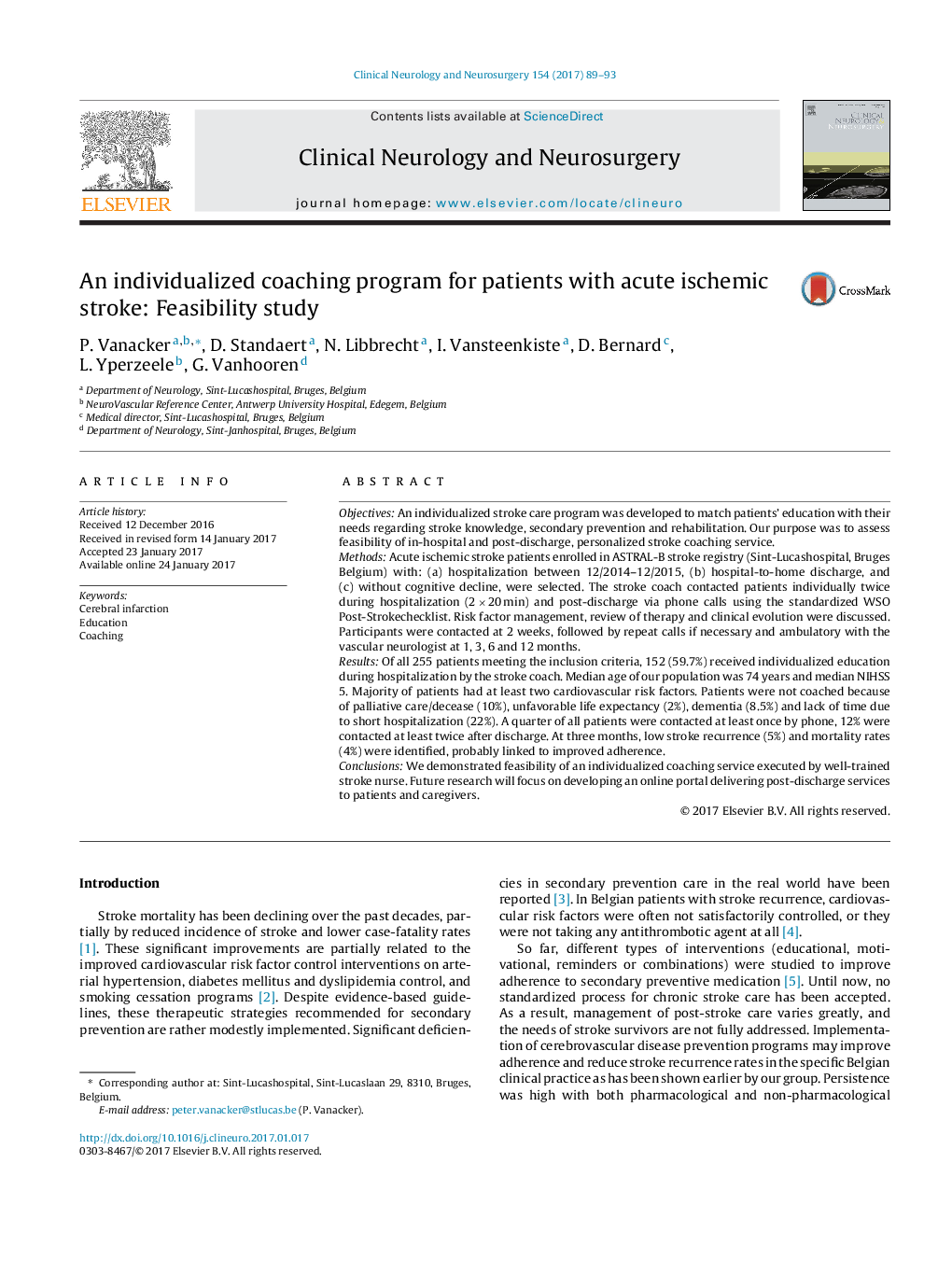| کد مقاله | کد نشریه | سال انتشار | مقاله انگلیسی | نسخه تمام متن |
|---|---|---|---|---|
| 5627215 | 1579668 | 2017 | 5 صفحه PDF | دانلود رایگان |
- Current secondary stroke prevention programs and post-discharge care is often deficient.
- New strategies with focus on an individualized coaching approach may be beneficial.
- Monocentric, Belgian pilot study demonstrated the feasibility of such approach.
- Future integration with mobile Health-solutions and telemedicine may be crucial.
ObjectivesAn individualized stroke care program was developed to match patients' education with their needs regarding stroke knowledge, secondary prevention and rehabilitation. Our purpose was to assess feasibility of in-hospital and post-discharge, personalized stroke coaching service.MethodsAcute ischemic stroke patients enrolled in ASTRAL-B stroke registry (Sint-Lucashospital, Bruges Belgium) with: (a) hospitalization between 12/2014-12/2015, (b) hospital-to-home discharge, and (c) without cognitive decline, were selected. The stroke coach contacted patients individually twice during hospitalization (2Â ÃÂ 20Â min) and post-discharge via phone calls using the standardized WSO Post-Strokechecklist. Risk factor management, review of therapy and clinical evolution were discussed. Participants were contacted at 2 weeks, followed by repeat calls if necessary and ambulatory with the vascular neurologist at 1, 3, 6 and 12 months.ResultsOf all 255 patients meeting the inclusion criteria, 152 (59.7%) received individualized education during hospitalization by the stroke coach. Median age of our population was 74 years and median NIHSS 5. Majority of patients had at least two cardiovascular risk factors. Patients were not coached because of palliative care/decease (10%), unfavorable life expectancy (2%), dementia (8.5%) and lack of time due to short hospitalization (22%). A quarter of all patients were contacted at least once by phone, 12% were contacted at least twice after discharge. At three months, low stroke recurrence (5%) and mortality rates (4%) were identified, probably linked to improved adherence.ConclusionsWe demonstrated feasibility of an individualized coaching service executed by well-trained stroke nurse. Future research will focus on developing an online portal delivering post-discharge services to patients and caregivers.
Journal: Clinical Neurology and Neurosurgery - Volume 154, March 2017, Pages 89-93
